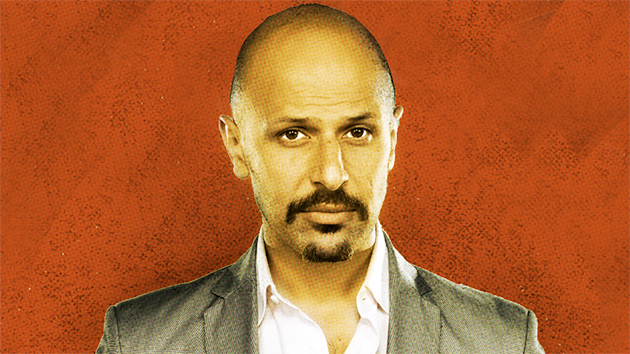Triple threat Donald Glover—writer, actor, and rapper—can now tuck another feather into his cap, as showrunner of Atlanta, a worthy new series premiering September 6 on FX. The 32-year-old Glover, known for his portrayal of the lovable Troy on Community, opted to leave that series after five seasons to pursue a show of his own. With Atlanta, he looked to his own roots on the periphery of the Atlanta drug scene who attended an elite northeastern college to bring a bit of realism to a fictional story.
Glover, a native of Stone Mountain, Georgia, and a graduate of NYU’s prestigious Tisch School of the Arts, plays Earn (Ernest), a Princeton dropout and a young dad who is “technically homeless” but at the moment is living with Vanessa (Zazie Beets), his ex-girlfriend and the mother of his daughter. Earn’s job selling travel deals at the airport only pays him on commission, which means his finances are constantly in disarray—at times he gets so desperate he has to borrow $20 just to take Van, whom he’s struggling to win back, to dinner. Discouraged and at his wit’s end, Earn approaches his rapper cousin Alfred (a.k.a. Paper Boi, played by Brian Tyree Henry) whose career is beginning to take off locally, and asks if he can be Alfred’s manager.
As is the case with most dramedies, many of the jokes here aren’t laugh-out-loud funny, even though Glover, during a previous three-year stint as a writer for 30 Rock, gave us many of Tracy Morgan’s absurd lines. Rather, Atlanta has a similar feel to Aziz Ansari’s Netflix hit Master of None. It provides an introspective look into the lives of millennial men navigating work, romance, and their own shortcomings as they become painfully aware of the people they’ve grown up to be.
Glover largely trades in his sillier comedic sensibilities for a more nuanced approach, while bringing much of the same charming awkwardness to Earn that he brought to Troy on Community. As a writer, Glover saves his most humorous lines for Darius (Keith Stanfield), Paper Boi’s hilariously enigmatic right-hand man.
What makes Atlanta particularly unique in the world of half-hour comedies is that fact that all its writers are black, and many are rookies in the writers’ room. “I wanted to show white people, you don’t know everything about black culture,” Glover told Vulture last month. The premise of exploring race in a comedic format is compelling enough, but Atlanta also manages to tackle gun violence, mass incarceration, sexual identity, and authoritarian abuse in the Black community (all within the first four episodes). Glover relies on humor, not preaching, to get his serious points across.
In the debut episode, Earn runs into a (presumably) old friend, a white man around his age. The friend uses the N-word while telling Earn a story about a party he’d attended, but he doesn’t use it when he tells the story to Paper Boi—a discrepancy highlighting flawed notions of whether, when, and with whom it’s appropriate for a white person to use the word.
In another episode, Paper Boi, now a rising star, spots a child playing outside with a toy gun pretending to shoot another child and proclaiming he’s “just like Paper Boi.” The rapper’s efforts to set the kid straight are lost on the child, thwarted by Paper Bio’s public persona. Elsewhere, as Earn awaits bond after being on a weapons charge after pulling a gun from his cousin’s glove compartment, another man in the jail’s holding area (where most are black) runs into his ex, a trans woman, who’s also awaiting bond. In this uncomfortable scene, the other men ridicule the man as a “faggot.” Glover then breaks the tension with humor: “Sexuality is a spectrum,” he stage-whispers to the distraught guy. “You can really do whatever you want.”
But then our attention is then drawn to a mentally unstable man clad in a hospital gown. Earn asks a guard why the man is even there—”He looks like he needs help”—and is told to shut up. Then, after the unhinged man spits some toilet water he’s been drinking on a guard, he is repaid with a beatdown.
Social issues aside, the show gives a dreamlike window into Earn’s personal growth (or lack thereof) and his life, which seems to consist of one obstacle after another. “I just keep losing,” Earn tells a wise stranger on a city bus. Yet if Atlanta maintains its careful balance of laughs and gritty reality, the show could well prove to be a winner.















